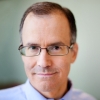Shaping WHO’s Future: 5 Experts Advise the New DG
GENEVA – Just hours before Tedros Adhanom Ghebreyesus was appointed the next WHO Director-General, a group of global health experts debated the most pressing leadership priorities for an organization that’s been hobbled a creaky bureaucracy, a severely limited budget and a perception that it’s no longer relevant.
Following a keynote speech by Secretary of the US Health and Human Services Tom Price on Tuesday that laid out US expectations, the experts from academia, NGOs, civil society and the corporate followed with their own recommendations for shaping WHO’s future. Highlights:
Ashish Jha, Director, Harvard Global Health Institute
WHO has been trapped in a “vicious cycle” of criticism, which impacts funding, which reduces its ability to be effective, which affects funding, etc., Jha said. His prescription for fixing things is to add transparency, reform human resources, create an accountability mechanism such as an inspector general. “These are just good institutional practices that we’ve learned over the years from lots of governments,” he said.
WHO needs to go through a process to decide on priorities and—perhaps more importantly—decide on what it should not do, Jha said. “One way to begin is by asking, what are things that only WHO can do?” he said, citing cross boarder infectious disease outbreaks, setting standards, etc.
Instilling accountability will be critical to WHO’s future, Jha said. “[With] Ebola, you can count on 1 hand the number of people who lost their job as a result,” he said. “There has to be a sense when the organization fails, there will be accountability. And that will mean people will have to succeed elsewhere.”
Loyce Pace, President & Executive Director, Global Health Council
Battered by bad news and bad press, WHO needs to do a better job of telling its story, Pace said. “Really I think in the first 100 days, the DG can embark on a PR campaign and make sure people understand good it does and the reason it exists,” Pace said. “Focusing on revamping its brand and promoting its image—that would be very helpful to the new DG. [And] it’s not just talking about the good. It’s about acknowledging shortcomings as well.”
In the Sustainable Development Goals era, WHO needs to develop partnerships that connect health with development, Pace said. “I haven’t seen that enough.”
She also emphasized the DG needs to realize the potential for WHO staff. “Great people are working at WHO. If you take off their shackles, they can take out their wings and fly,” Pace said.
John Flannery, President & CEO, GE Healthcare
The new DG shouldn’t rush in and try to do too many things in the first 100 days, said Flannery, who with 50,000 employees in 130 countries, can understand the challenges the new DG faces. Rather, the DG should embark on some serious listening. “You’ll learn things that you did not expect to,” Flannery said.
Along the way the new DG should spend time assessing the caliber of people in the organization and where are the gaps in competencies and training. “If you don’t’ have a powerful motivated organization, the rest of the agenda is going to dissolve for sure,” Flannery said.
He also recommended narrowing the focus, doing a few things very well and measuring the results. Helping the billions of people that lack basic health care by improving sanitation, nutrition and literacy would have a major impact, he said. “Those are areas where I think over day in, day out, there could be proud long-term impact,” Flannery said. “I’d say, hit a lot of singles and everybody would be better off.”
Ms. Jan Beagle, Deputy Executive Director, Management and Governance, UNAIDS
The new DG needs lead innovation at the beleaguered agency, Beagle said. “There has to be new ways of doing business, new ways of working,” she said.
Beagle also argued for a concerted effort for gender equity and the empowerment of women at the organization. “This is one of the key factors that is going to enable all of the organizational agenda,” she said. “I would hope the new DG is strongly in favor of gender equity within the organization and throughout the work internationally.”
WHO needs to be in tune with what countries really need—less technical support and more “real upstream management advice,” Beagle said.
Mark Dybul, Executive Director, The Global Fund to Fight AIDS, Tuberculosis and Malaria
The first year is key to a successful tenure, Dybul said. Score some quick wins to demonstrate competency and vision for the organization, he advised. “There are big, big changes to be made so you need good will,” he said.
Dybul also urged the new DG to rally staff around a common mission and making sure all their work relates to that mission. “The vast majority of people—80%—want that bigger mission; 20% won’t [and] over time you’ll have to knock them out. [The new DG should ensure staff is ] really focusing on what are we trying to do—what’s our role and what is the role of the partners,” he said.
The Tuesday event was sponsored by Management Sciences for Health, Harvard Global Health Institute, Global Health Council and others.
Ed. Note: See all of GHN’s #WHA70 coverage here.
Want to share a tip or a story idea or connect with GHN editor-in-chief Brian Simpson in Geneva? Please be in touch.
Join the thousands of subscribers who rely on Global Health NOW summaries and exclusive articles for the latest public health news. Sign up for our free weekday enewsletter, and please share the link with friends and colleagues: Subscribe to GHN




